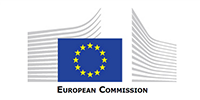
A new Cost-Benefit analysis on the Rail Baltica project has been presented today at the Rail Baltica Global Forum in Riga. The analysis concludes that the project has the potential to bring important socio-economic benefits, such as reduced travel times, a lower carbon footprint and increased exports to the whole region. The Ministers for Transport of Estonia, Latvia, Lithuania and Vice-Minister of Poland, all present at the Forum, confirmed their strong commitment to the realisation of the project, agreeing it is time to move forward with its implementation.
Henrik Hololei, Director-General for Mobility and Transport at the European Commission said "the new Cost-Benefit analysis clearly confirms the viability and value of Rail Baltica, making a strong case for a continued EU support. Ensuring strong connectivity is at the heart of EU policy. The Baltic States have been given a unique opportunity to together take full advantage of this policy. I would urge the countries involved to take decisive action now, before it is too late.''
Catherine Trautmann, the European Coordinator for the North Sea-Baltic Corridor said "cross-border projects generate benefits that no country could generate on its own, that is why the EU supports them so strongly. I am glad to see that the costs for the infrastructure are under control. The total investment of 5.8 billion EUR is foreseen in the Work Plan of the North Sea-Baltic Corridor."
Rail Baltica is a project aiming to connect the Baltic States to the European railway network by a modern and fast rail connection. It is the most important project of the North Sea-Baltic Core Network Corridor of the Trans-European Network (TEN-T). With the current progress made in planning, management and financing, the project is expected to be operational within ten years from now.
About The European Comission
The aim of the Commission is to promote a mobility that is efficient, safe, secure and environmentally friendly and to create the conditions for a competitive industry generating growth and jobs. The issues and challenges connected to this require action at European or even international level; no national government can address them successfully alone. The European Commission’s Directorate-General for Mobility and Transport works in concert with the European Union Member States, European industry, citizens and stakeholders.




Comments
There are no comments yet for this item
Join the discussion